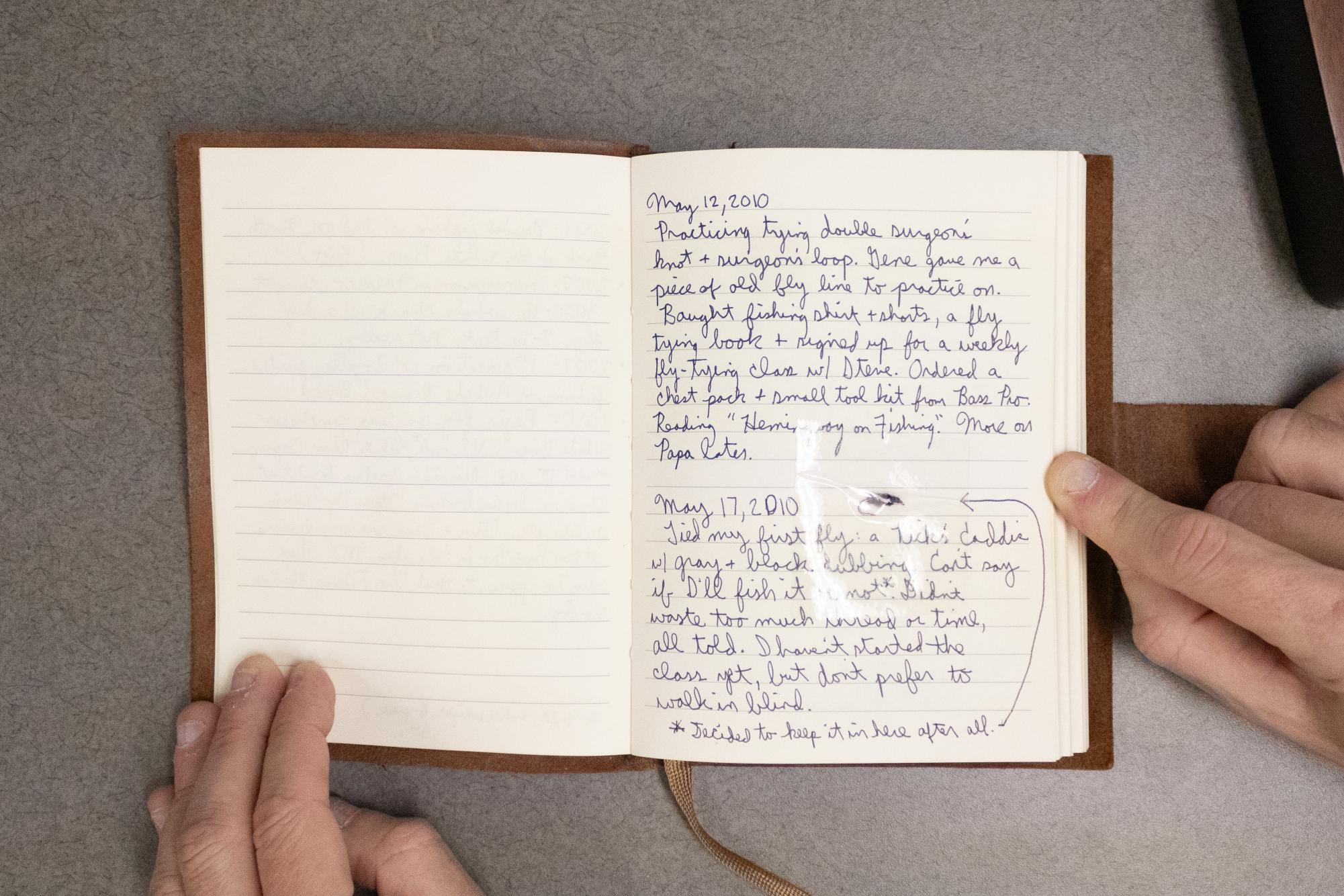Philosophy Professor's Advice for Beginning Journaling
Dr. Troy Hall was recently featured in the Maneater, where he shared tips for beginning journaling inspired by his study of Philosophy:
Journaling allows a writer to take snippets of their life and create an art piece of words and colors. You are able to create a collection of thoughts from thin air while releasing intense emotions that may have otherwise been kept in.
There is a common misconception that journaling has to be an artistic product every time, but the beauty of the medium comes when you let yourself be free, and follow your intuition. Journaling can take many forms, from to-do lists, to written anecdotes to scrapbooking. It also doesn’t have to cost much; all you need is a notebook, a pen and a little bit of time. Here are my tips for starting journaling:
Getting Started
Journaling should be a process of release that produces nothing other than an enjoyable time.
Experiment with different papers and markers to craft a page that you think looks nice. It doesn’t have to be a block of dense text or a collage. Do what you want, even if it is imperfect.
It can be intimidating to try and fulfill a page requirement. Instead, start by setting a timer for 10 minutes and give yourself the space to write whatever you want.
A lot of people journal, so take advantage of their posts and find inspiration in their spreads. There is never any shame in getting ideas from other people, especially when you adapt them into your own style.
As a professor of philosophy and jazz at the University of Missouri, Dr. Troy Hall has encountered several philosophers’ views on journaling. One of Hall’s philosophical icons from the late 1800s, Henry David Thoreau, was an avid journaler. According to Hall, journaling was a part of daily life for Thoreau and other educated men.
“It was part of your intellectual activity, and it was where you recorded observations about society, about things that you had read,” Hall said. “You would have your journal with you when you were reading a book. So as you read, you’d be making comments, especially if it’s a library book. You can’t write in marginalia in the book. So you had your journal.”
Thoreau’s journaling allowed himself to find depth in ordinary objects.
“I think that he realized it really helped him with developing the skill of seeing nature, seeing natural objects, seeing a world within, like a leaf or a puddle of water,” Hall said.
For Hall, journaling helps him reflect on introspective moments and return to them. It also allows him to judge if he is thinking clearly.
“I’m often reflective or introspective about a certain experience,” Hall said. “If I want to come back to it, I better be able to remember it. And if I can’t, then that would be a shame.”
Journaling doesn’t have to just be a record of the day. One style Hall mentioned is letter writing, where the journaler can write letters to their future self or to people they feel anger toward.
No matter the medium, journaling allows people to remain alive and encourages them to understand themselves. “It is a purely non-violent way of preserving meaning in your life, and that’s really what we need,” Hall said. “One way to get to know yourself is to write what you’re thinking and to see yourself made object in signs and language.”
Hall shares three of his tips to begin journaling:
Dr. Hall’s Tips & Tricks
“The thing you want to do anytime you're starting something new is to give yourself some grace. You don't have to journal absolutely every day.”
“I'm not going to fix it, I'm not going to edit it, I'm not even going to reread it. I'm just going to close the book.”
“Write it because the process of writing itself allows you to express something within you, and that has value.”

This is a reprint of an article by Alex Gribb published in the Maneater on April 27, 2025. Photos by Jack Andersen.
